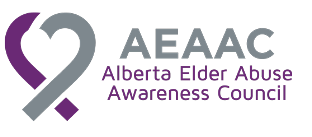Rejoignez BCCRN pour une nouvelle session: The Impact of Ageism on Elder Abuse and How to Challenge It
Présenté par Wanda Morris et Laura Tamblyn Watts, CARP
Le mardi 18 septembre de 10h30 à midi
Contactez pour plus de détails
Interested in joining our Board? Learn more about this opportunity and apply today!
Cette ressource fait partie du projet ''Accès à la justice pour les victimes ainées d'abus sexuels'', financé par le Fonds d'aide aux victimes du Ministère de la Justice.Plus de détails sur ce projet et liste complète des ressources
Ces articles nécessitent des abonnements aux journaux cités
- Elder sexual abuse and implicit agism: examining the warm-incompetent bias among mock jurors
(Maggie L. Syme & Tracy J. Cohn, 2019, US)
''Implicit ageist beliefs about the warmth and incompetence of older adults may influence jurors’ perceptions and judgments of an older adult’s competence in legal cases hinging on capacity and consent, including elder sexual abuse. However, little is known about the nuances of implicit agism in elder sexual abuse cases, and if it can be attenuated. The current study proposed to address these gaps via a randomized vignette design administered to a community sample of 391 US adults. Mock juror participants evaluated an elder sexual abuse case involving an older married couple, in which the victim had dementia. Results suggest that implicit agism was present among mock jurors, consistent with a warm-incompetence bias, and was predictive of mock jurors’ guilt ratings. Age and dementia-relevant jury instructions and mock juror gender were not found to be predictive of guilt ratings. Implicit agism among jurors should be addressed to reduce the potential for implicit age bias to affect elder sexual abuse cases.'' - Sexual Violence Against Older People: A Review of the Empirical Literature (Bows, 2017, UK)
"Aging and sexual violence are both established areas of research, but little attention has been paid to research into sexual violence against older people. This article presents a critical review of the literature reporting empirical research in three overlapping fields of inquiry: elder abuse, domestic violence, and sexual violence, identifying points of theoretical and methodological similarity and difference across academic disciplines." - Sexual Assault and Justice for Older Women: A Critical Review of the Literature (Fileborn, 2016, Australia)
"This article provides a critical review of current literature on the sexual assault of older women—including an exploration of the specific features and emotional and physical impacts of older women’s experiences—and highlights current gaps and future directions for research, practice, and theory. A review of the literature indicates that older women constitute only a small proportion of victim/survivors. However, there is evidence to suggest that existing research underestimates the extent of this issue. Older women face particular barriers to disclosure and accessing the justice system, resulting in their experiences remaining hidden. Many of these barriers also contribute toward older women’s experiences being ignored, dismissed, or downplayed by potential bystanders. These barriers are explored in depth in this article and include cultural context, ageism, cognitive and health impairments, and living in a residential care setting. Responding to, and preventing, the sexual assault of older women requires a tailored approach—and we currently lack sufficient insight to develop appropriate responses. In closing, this article considers how we might work toward achieving “justice” for older women victim/survivors." - Women With Disabilities’ Experience With Physical and Sexual Abuse: A Review of the Literature and Implications for the Field (Plummer, Findley, 2012, US)
"While studies suggest that the rate of abuse of women with disabilities is similar or higher compared to the general population, there continues to be a lack of attention to this issue. Women with disabilities are at particularly high risk of abuse, both through typical forms of violence (physical, sexual, and emotional) and those that target one’s disability. In an effort to highlight the need for increased attention to this issue, this article reviews the current peer-reviewed research in this field. The authors outline recommendations for future research goals and provide implications for research, practice, and policy." - Older Women Survivors of Physical and Sexual Violence: A Systematic Review of the Quantitative (Cook, Dinnen, O'Donnell, 2011, US)
"This systematic review synthesizes the quantitative empirical literature concerning older women survivors of physical and sexual assault." - Sexual Aggression Between Residents in Nursing Homes: Literature Synthesis of an Underrecognized Problem (Rosen, Lachs, Pillemer, 2010, US)
"Evidence exists suggesting that most sexual aggression against older adults occurs in long-term care facilities. Fellow residents are the most common perpetrators, often due to inappropriate hypersexual behavior caused by dementing illness. This resident-to-resident sexual aggression (RRSA) is defined as sexual interactions between long-term care residents that in a community setting would likely be construed as unwelcome by at least one of the recipients and have high potential to cause physical or psychological distress in one or both of the involved. Although RRSA may be common and physical and psychological consequences for victims may be significant, this phenomenon has received little direct attention from researchers to date. We review the existing literature and relevant related research examining elder sexual abuse and hypersexual behavior to describe the epidemiologic features of this phenomenon, including risk factors for perpetrators and victims. Preventing and managing sexual aggression in nursing homes is made more challenging due to the legitimate and recognized need for nursing home residents, even those with advanced dementing illness, to sexually express themselves. We discuss the ethical dilemma this situation creates and the need to evaluate the capacity to consent to sexual activity among residents with dementing illness and to re-evaluate capacity as the diseases progress. We offer suggestions for managing RRSA incidents and for future research, including the importance of designing effective interventions."
Notre projet ''Accès à la Justice'' s'est achevé en mars 2020. Retrouvez une liste complète des ressouces, y compris nos analyses documentaires, instantanés de recherche, et fiches info en cliquant ici.
Page 5 sur 17


















